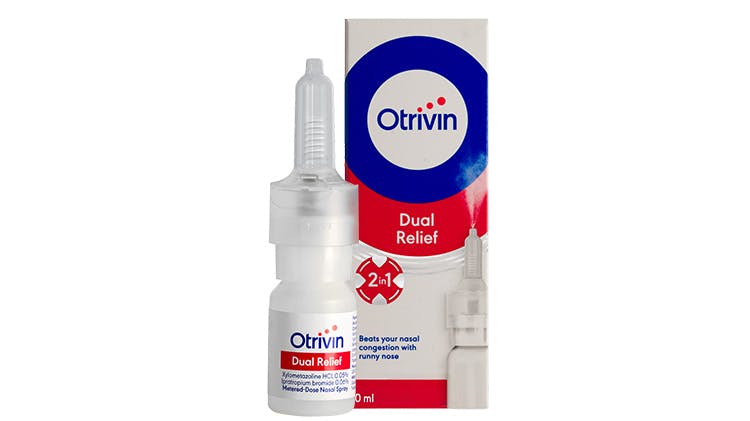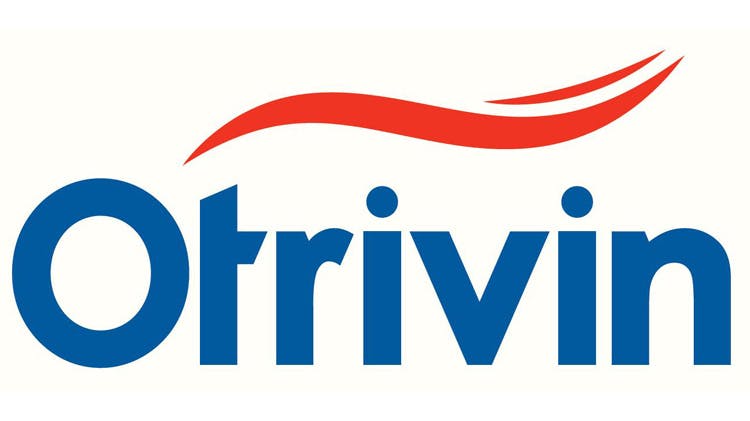Otrivin Dual Relief: Xylometazoline and ipratropium

Xylometazoline and ipratropium: Effective combination
A combination of two topical agents, to relieve patients’ worst cold symptoms at once:
Xylometazoline hydrochloride (0.05%):
- A sympathomimetic agent, provides rapid and long-lasting relief (within 5-10 minutes and for up to 6-8 hours) of nasal congestion3-5
- It improves nasal airflow, reduces mucus hypersecretions3 and relieves sinus pressure6-9
Ipratropium bromide (0.06%):
- An anticholinergic agent that reduces watery discharge from nasal mucosa (rhinorrhoea) and lessens sneezing2,4,10,11

Otrivin Dual Relief (Xylometazoline hydrochloride 0.05%+ ipratropium bromide 0.06%)
For patients who are looking for rapid and effective relief of nasal cold symptoms.1-4
Otrivin Dual Relief: Immediate and long-lasting relief of nasal cold symptoms1-4


